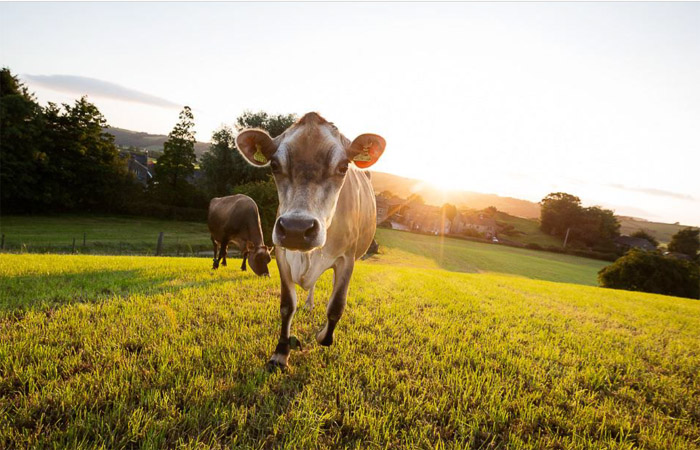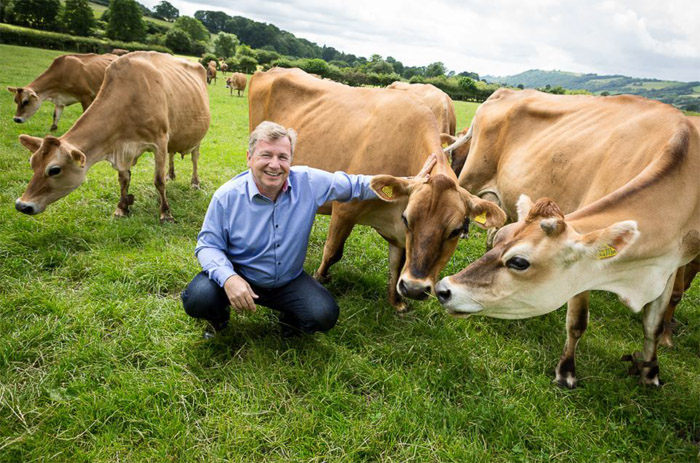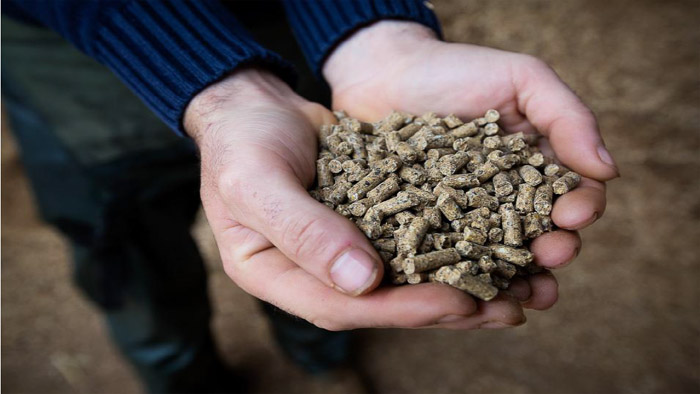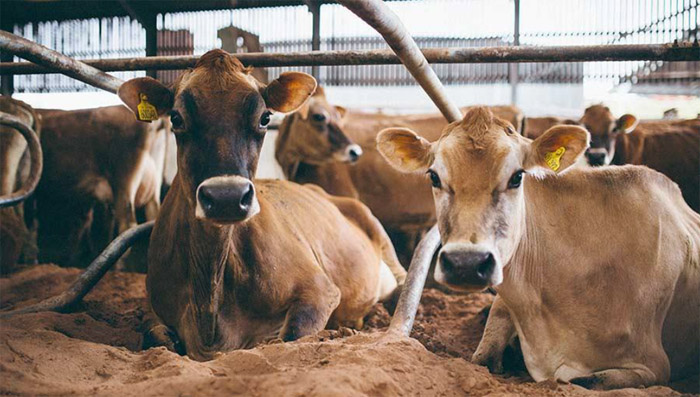|
|

|
  
Top Stories
Update 2021/4/23
WTech
SWISS AGRITECH STARTUP MOOTRAL HELPS FARMERS REDUCE THEIR CARBON FOOTPRINT
By Suzanne Forcese
The elephant in the room is really the cow.(youtu.be)
It is estimated that 24% of the world's greenhouse gases come from the agricultural sector. Methane, produced in cow emissions, is responsible for 40% of that amount.
With a forecast of 2.5 billion cows by 2050 (up from the 1.5 billion on earth now), there will be a methane global warming contribution within 20 years that is 84 times more powerful than carbon dioxide.

The average cow produces more CO2 emissions per year than 5 average-sized cars.
Courtesy Mootral – The Brades Farm, Lancashire, England
www.bradesfarm.co.uk/environment
WATERTODAY reached out to the team at Mootral, a spin-out company that evolved in 2018 from Neem Biotech in Wales.
“Our vision is a better world with a secure supply of sustainable and safe food from agriculture,” Eileen Ruter, Director of Business Development told us. “Our mission is to develop innovative solutions for companies and governments to reduce greenhouse gas emissions and to reduce the use of antibiotics in the agricultural sector.”
Dairy farms play a crucial role in environmental stewardship. Well-maintained grass and soil provide valuable sequestration. Cattle also provide nutrient-rich food sources for millions.
The majority of consumers want to continue to enjoy beef and dairy as part of a healthy diet. At the same time there is an impetus to be part of the movement in mitigating climate change.
Mootral’s solution in a positive transition to climate-smart agriculture is a natural feed supplement that reduces methane emissions from ruminants by up to 38%.

Mootral CEO Thomas Hafner at Brades Farm (UK), Mootral’s flagship
“I’m on a mission to make this feed supplement available to all farmers at no cost.” Photo Courtesy Mootral
In 2018 Brades Farm became the first dairy farm globally to feed Mootral to their herd. (you tu.be")
In a 12-week pilot study on 400 cows scientists from Scotland’s Rural College measured the methane output weekly using laser technology. Results showed an average 30% reduction.
Other results include a 3-5% increase in milk yield when feeding Mootral and lower somatic cells in bulk milk. There was no negative impact on animal health or quality of milk. An added bonus was a reduction in the number of flies in the barn.
“Mootral Ruminant has a direct inhibitory effect on the type of microbes that produce methane in a cow’s stomach,” Ruter explains.
Garlic powder and citrus extracts are the secret sauce in Mootral Ruminant.
Natural compounds from garlic have shown consistent methane reducing and propionate increasing capacity. Natural plant flavonoids including citrus extracts are known to have anti-inflammatory, antioxidant and antimicrobial properties and recent studies have revealed their ability to improve rumen fermentation. Neem Biotech – Mootral's research arm, has created a synergistic relationship of the two main ingredients in their proprietary blend.

Mootral Ruminant. A feed supplement made from natural ingredients proven to reduce methane emissions from cows by up to 38% while increasing yield naturally and enabling production of climate-friendly milk and beef. Photo Courtesy Mootral
How does this work?
Mootral’s Director of Scientific Affairs, Oliver Riede says. “Methane is produced in the rumen by a specific class of microorganisms, methanogenic archaea. To a certain extent this process is necessary to maintain an optimal environment for the fermentation of ingested plant material.
“In the end it’s all about tweaking the community of microorganisms in the rumen the right way.
“By turning switches on a molecular level, we can provoke significant changes on a large, global scale.”
Riede adds that it is not necessary to invent complicated technologies. The research team asked the question: “What do we find in the toolkit of Nature to inhibit the activity of methane-producing archaea?”
And the answer – Botanicals.
“As these compounds are derived from plants, the production itself can be climate-friendly since all plants take up carbon from the atmosphere for their growth.”
In a lead-up to the UN Climate Change Conference (COP26) in November 2021, Mootral’s fast forward trajectory is off to a running start with the world’s first Carbon Credits generated from cattle burp emission reductions.
“This is an important step towards our vision to make Mootral Ruminant available to farmers at no cost,” Ruter told WT.
Leading the charge for sustainable agriculture, Mootral is turning their attention to the climate friendly beef market with pilots taking place in the US and Europe this year, as part of a bid to get sustainable meat on the menu in steakhouses across the globe.
“We are about to enter the US market with enlisting our first flagship farmer on US soil,” Ruter adds.
“We are currently looking for interested players in the meat and dairy industry – from processors to retailers and restaurants that would like to take a pioneering role and collaborate with us to make climate smart meat and dairy available to North American consumers.”

Climate Smart Cows on the Brades Farm
suzanne.f@watertoday.ca
|
|
|
Have a question? Give us a call 613-501-0175
All rights reserved 2026 - WATERTODAY - This material may not be reproduced in whole or in part and may not be distributed,
publicly performed, proxy cached or otherwise used, except with express permission.
|
| |